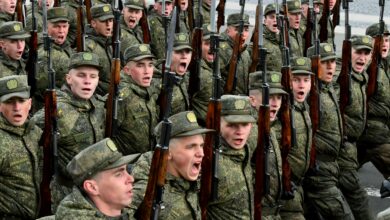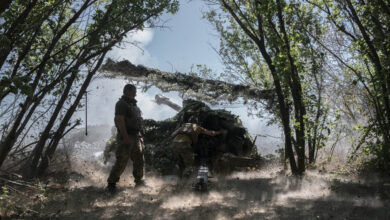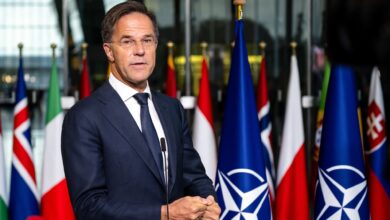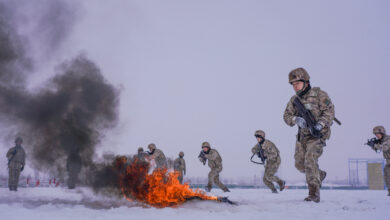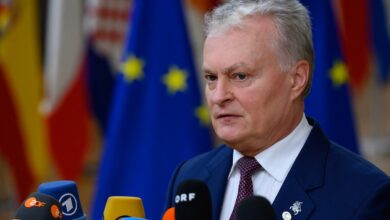Germany’s defense minister said Tuesday that allies could start training Ukrainian forces to use Leopard tanks, as NATO Secretary General Jens Stoltenberg predicted that a decision on their delivery would be made “soon.”
Germany has been under intense international pressure in recent weeks to allow the export of powerful German-made Leopard tanks to Ukraine to help it repel Russia’s invasion.
Berlin has so far declined to give permission despite a growing clamor from many of its allies.
But Defense Minister Boris Pistorius indicated Tuesday that a decision could be imminent, revealing that he had “expressly encouraged partner countries that have Leopard tanks that are ready for deployment to train Ukrainian forces on these tanks.”
“I expect a decision to be made shortly,” he added ahead of a meeting with Stoltenberg in Berlin.
Stoltenberg welcomed the “clear message” from the minister, “because after a decision has been taken on the delivery on battle tanks, it will take some time to… make them ready” and to train Ukrainian soldiers to use them.
He added that he expected a decision “soon.”
“We must provide heavier and more advanced systems to Ukraine, and we must do it faster,” Stoltenberg said.
Moscow has shown no signs of changing course in its invasion, he added.
“We have no indication that President (Vladimir) Putin has changed his goals… The only way to lasting peace is to make it clear to Putin that he will not win on the battlefield,” he said.
Mounting Pressure
Pistorius had emphasized earlier that Berlin was not opposed to Leopard deliveries but had simply not made a decision yet.
“We are supporting Ukraine not to lose this war, to win it against Russia,” he said in an interview with the broadcaster ZDF.
“And to that end, Germany is doing more than practically any other ally except the US.”
Asked when Germany was planning to make a decision on Leopard tanks, Pistorius said it was not up to him.
“This decision will be made in the chancellery,” he said.
He also defended Chancellor Olaf Scholz against accusations of dithering on whether to approve the delivery of Leopards.
“Taking the lead does not mean blindly going ahead,” he said. “And if the decision takes another day or two, then that’s just the way it is.”
Pistorius took office last week at a crucial time for the German defense ministry.
While scores of nations have pledged military hardware for Ukraine, Kyiv is clamoring for the more powerful Leopard tanks, seen as key to punching through enemy lines.
The tanks are used by several EU nations but these countries require Berlin’s permission to send the German-made armaments on to Ukraine under Germany’s war weapons control act.
Poland on Monday upped the pressure on Berlin by saying it would be prepared to go ahead and deliver the tanks without permission.
But Pistorius insisted there was no division among Ukraine’s Western allies.
Observers would be “well advised not to wantonly conjure up this supposed division within NATO,” he said.




